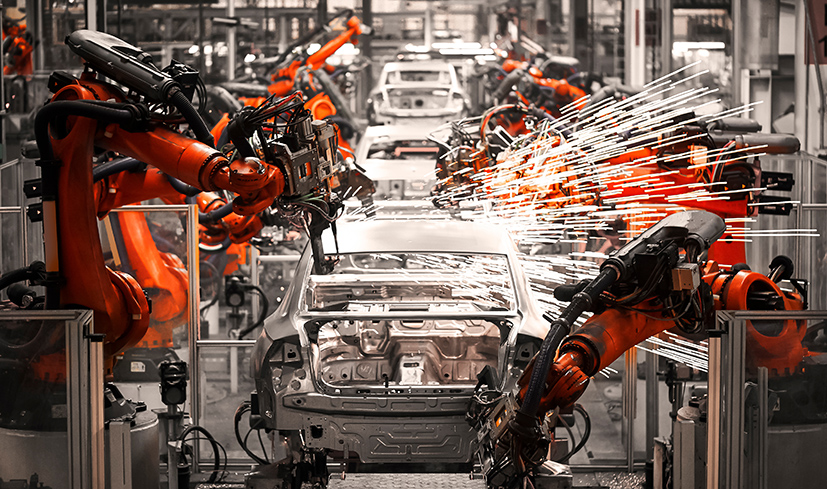Sentiment within the manufacturing sector stagnated in the three months to January, as output volumes fell unexpectedly, according to the CBI’s latest quarterly Industrial Trends Survey.
Output is expected to rise slightly in the three months ahead, but the share of firms citing weak orders or sales as a constraint on production rose to its highest in three years, with total new orders falling at their fastest pace since July 2020.
Growth in average costs accelerated in the quarter to January, putting pressure on margins. The pace of growth in domestic selling price inflation was unchanged, but export selling prices rose over the quarter.
Investment in tangible assets (buildings, machinery, equipment) is expected to fall sharply in the year ahead, with investment in innovation also expected to weaken. However, manufacturers expect to increase spending on training & retraining amid lingering concerns over shortages of labour.
The survey, based on the responses of 246 manufacturing firms, found:
- Output volumes fell in the quarter to January, after being unchanged in December (balance of -10% from 0% in the three months to December). Firms expect volumes to rise marginally in the next three months (+7%).
- Total new orders fell at their fastest pace since July 2020 (balance of -13% from +2% in October) and manufacturers expect orders to remain unchanged over the next three months (-1%).
- Growth in average costs per unit of output accelerated in the quarter to January, with the pace of costs growth standing well above average (balance of +43%, from +29% in October, long run average of +18%). Cost growth is expected to remain elevated in the quarter to April (+43%).
- Domestic selling prices were reported as broadly stable over the three months to January (balance of +2%, from +5% in October), the weakest balance in over three years and matching the long-term average. Export price inflation accelerated from October (+14%, from +10%) and stands above the long-term average (-4%). Domestic price growth is expected to pick up in the next three months (+9%), while export price growth is expected to ease (+6%).
- Investment intentions for the year ahead were mixed. Manufacturers expect to raise spending on training & retraining (+6% from +5% in October). Investment in product & process innovation is expected to fall (-5%, from +6%, the weakest since the quarter to January 2021). Investment in tangibles is expected to fall rapidly, including buildings (-29% from -31%) and plant & machinery (-15% from -11%, also the weakest since January 2021).
- The main constraint on investment was uncertainty about demand (cited by 58% of manufacturers, the highest since January 2021). Other factors include: inadequate net return (40%, the highest since July 2020); the cost of finance (22%, the highest since January 1991 – excluding the pandemic period) and labour shortages (20%, down from a record 37% two years earlier – excluding the pandemic period – but still above the long-term average of 11%).
Anna Leach, CBI deputy chief economist, said: “Conditions in the manufacturing sector deteriorated unexpectedly at the start of the year, with output falling and order books at their weakest since the depths of the COVID-19 pandemic. Uncertainty about demand looks set to weigh on investment in the year ahead.
“Manufacturers are also facing potential disruption to their global supply chains in the near-term because of the diversion of commercial shipping away from the Red Sea – concerns that access to materials and components could limit output in the quarter ahead remain elevated relative to the long-run average. This is likely to push up the price of some imported inputs at a time when firms are still absorbing the costs of higher energy bills and a still tight labour market.
“The Spring budget represents an opportunity to look beyond these short-term challenges and strengthen the foundations for sustainable economic growth. Full capital expensing was an exciting first step in this direction, but the government must go further to instill confidence in manufacturers to invest through a programme of measures around innovation, skills and decarbonisation, which the CBI will outline in its upcoming Budget submission.”



